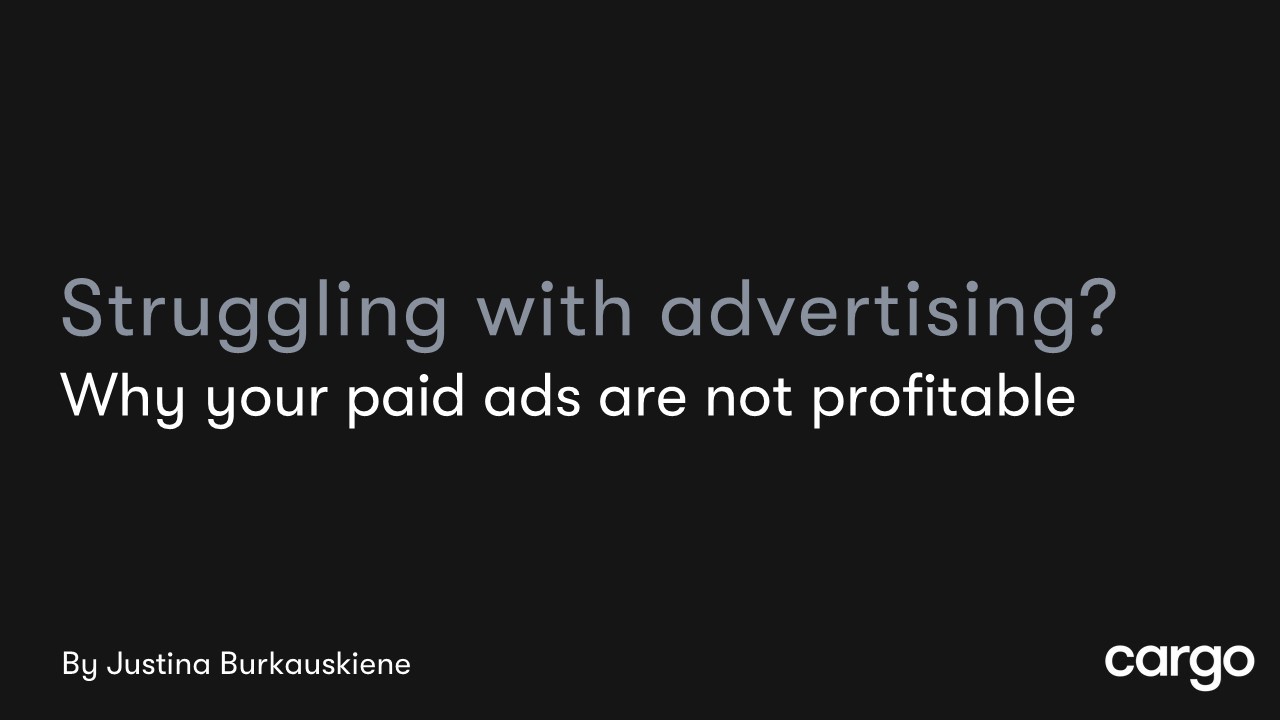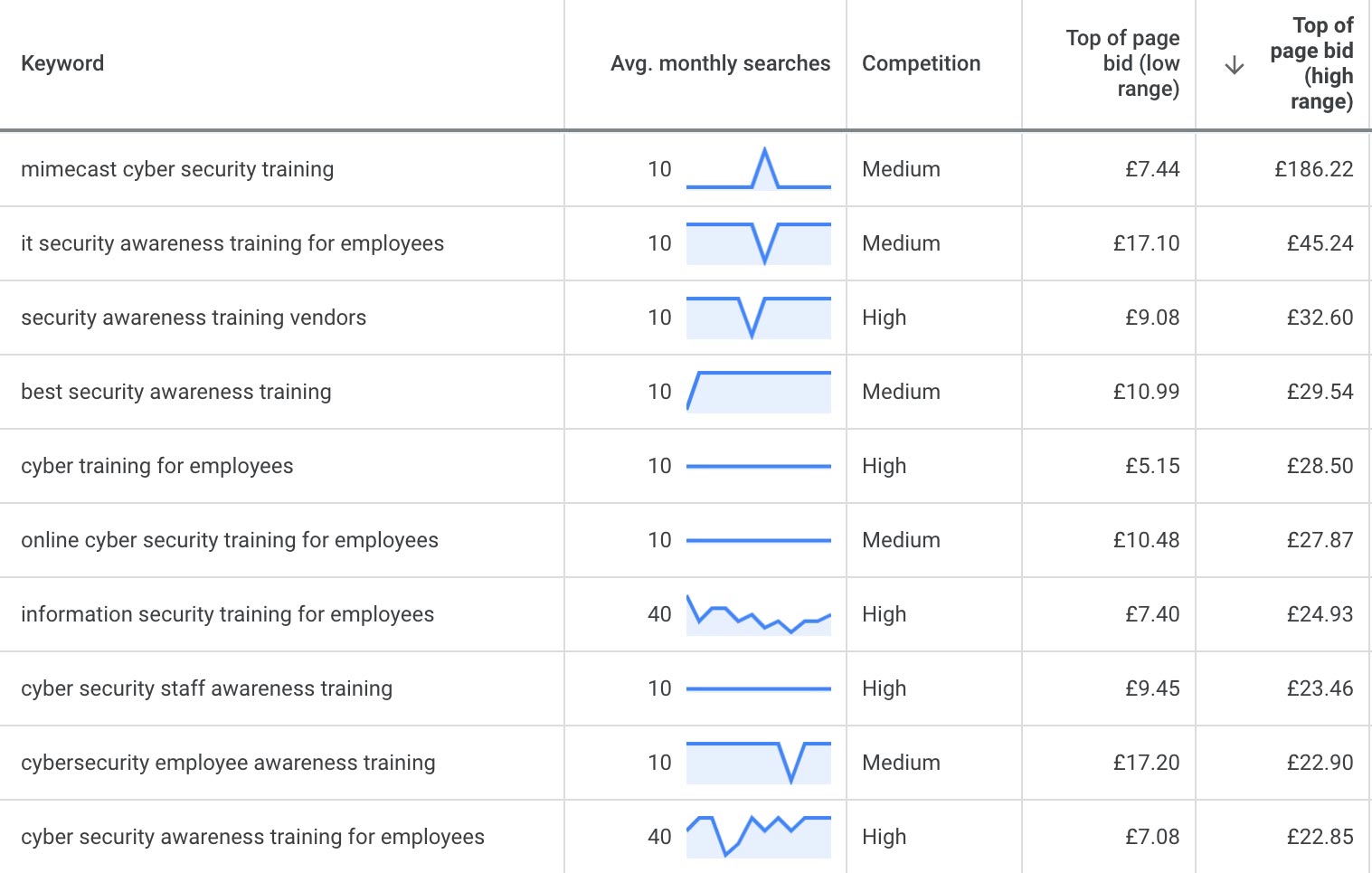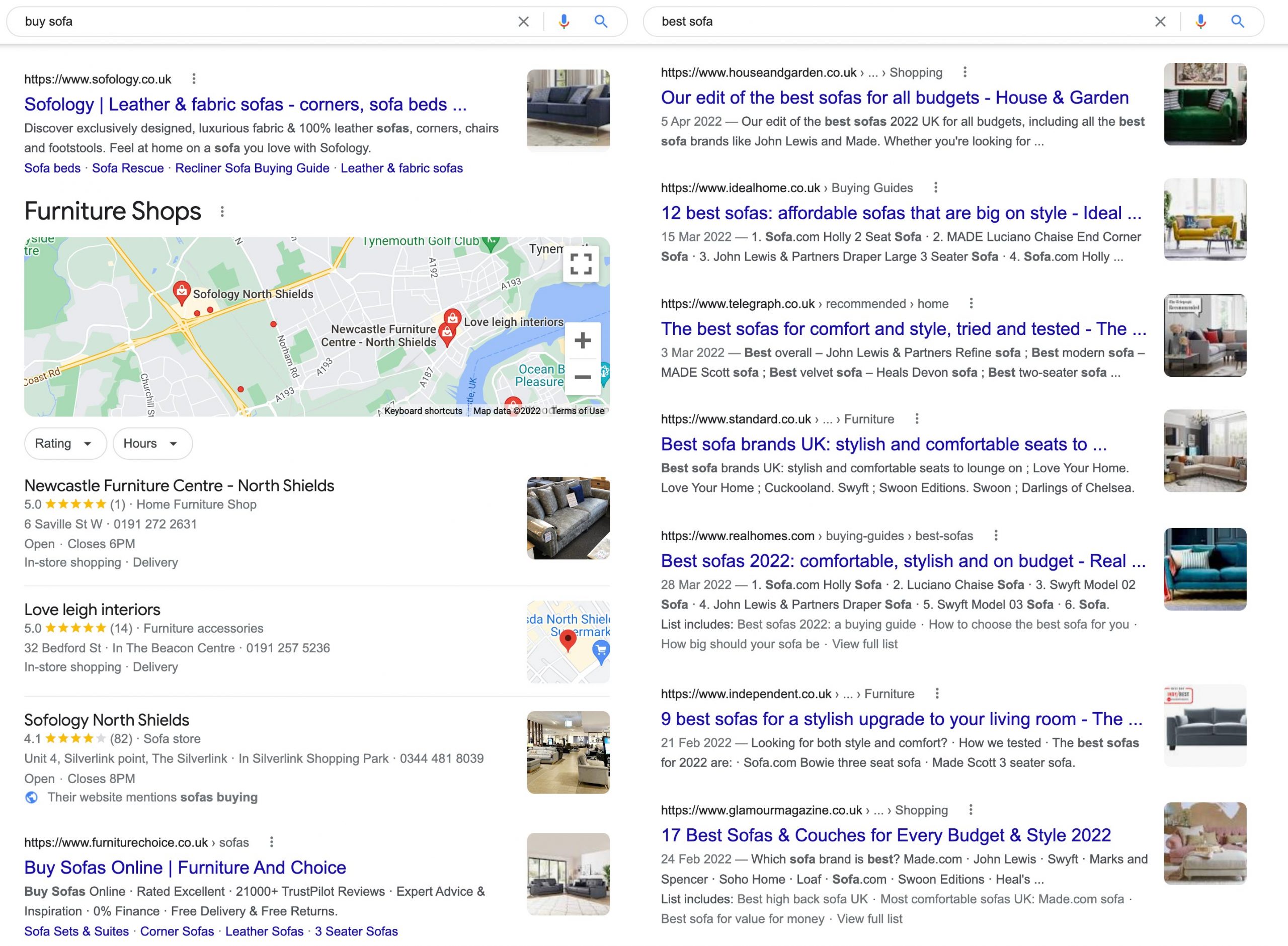27th April 2022
Why Your PPC Ads Are Not Profitable

One of the most common types of pay per click (PPC) advertising is paid search. For an online retailer, Google Ads can be the quickest and easiest way to increase sales revenue and profitability.
Many of our clients believe that all they need to do to increase their profits is increase traffic to their website, and they choose to do so through paid search.
However, many overlook the fact that the average conversion rate on the AdWords search network is just under 4 per cent. In the case of the display network, the figure is less than 1per cent.
If your ads are receiving impressions and clicks but no conversions, it is most likely due to a combination of factors. And, contrary to what the industry may claim, there are no growth hacks that you can use to see immediate results. Driving sales with AdWords is difficult, even with well-optimised keyword targeting, custom audiences, and other features.
In this article, you will learn the reasons why people are not converting on your Google ads and a few ways that you can reduce these issues to enhance performance. The main reasons why people are not converting are:
1. Your budget is too low
Using paid search or display advertising has become one of the most common methods of increasing traffic and sales to your website. Even small businesses in more competitive industries can spend tens of thousands of pounds per month on AdWords.
To be honest, larger companies will gladly fork out a few thousand pounds to ensure that they stay ahead of any new competition. We also frequently see heavily backed start-ups enter more competitive industries, investing a significant portion of their overall marketing budget into paid search advertising. And this severely restricts anyone with a limited budget. For example, some terms for cyber security training can cost upwards of £182 per click for just 10 average searches a month.

It is crucial to be realistic about what you can accomplish within your budget. If you do not have a lot of money to spend on PPC ads, you will have to limit the scope of your campaign and bid on a small number of keywords to reach a smaller audience.
Using the first few months of any new PPC campaign for data collection and observation is an effective way to go. The goal for this period is to run ads and use the lessons learned from the first month to improve performance in months two and beyond. This is particularly helpful in niches with a lot of competition.
2. Your Keyword Intent is wrong
When performing keyword research for competitive niches, it is a great option to choose keywords that have less competition and a lower cost per click. But when looking at these lower competition keywords many lose sight of the search intent.
Many think that because a keyword sounds like it has commercial intent that it does, but that is not always the case. Take these keywords for example:
Each of the terms for “sofa” has highly different search volumes, and from the first glance, these terms have similar search intent. But when we look further, we can see that people looking to “buy sofa” and people looking for the “best sofa,” are getting two different organic results. People looking for the “best sofa” are getting content-based, informational results, while those looking to “buy sofa” are getting commerce-based results, which signifies more commercial intent to purchase.

If you are serving the same ad on these two terms you are unlikely to get the same return on both of them. So, investigate your terms, look at each search intent more closely, work to match user intent better, and remember to use your keywords carefully, simply stuffing them in your ads will not produce results.
3. Your ad copy could be improved
The importance of ad copy in the development of a successful campaign is frequently overlooked. Google AdWords ads are text-only, and your headline and supporting copy can only be a certain number of characters long. To ensure your ad copy is as concise as possible whilst still being persuasive, you will need to carefully craft your messages and make every word count.
Great ad copy can boost your ad position and overall performance by dramatically increasing click-through rates. In your ad copy, be sure to include keywords, value propositions, and differentiating factors and always use call to actions.
4. Your landing pages are poor
Do you have a paid search campaign that started gaining traction with impressions and clicks, but you are still struggling to get conversions? It is most likely your landing page’s fault!
Commonly, businesses are looking at the clicks and impressions, blindly expecting people who are looking for relevant services to convert, but rarely consider the quality of their landing pages and their overall website.
We still see so many businesses opting to use one of their internal website pages for paid search advertising, yet, they can have exceptionally low relevance to the ad campaign, and too few (if any!) conversion actions. Low landing page relevance to your ads and keywords will result in low-quality scores, which will in turn increase your spend and lower your conversion rates.
Not only that, but many businesses forget to consider the quality of their website and landing pages against their competitors, especially when it comes to those costly terms. Poor site performance has the ability to kill the bottom line, whether it is through torturing your customers while waiting for their basket to load, or by not loading at all!
When thinking about your paid search advertising campaign, review your landing pages and your website. Do not send your users to a page that lacks call to actions and takes a while to load up. Consider why the user is clicking on your ad and why they are likely to choose you instead of your competitors.
Conclusion
Conversion rates for a typical AdWords campaign are not as great as many might claim, and while you can receive many clicks from these campaigns, be aware that just driving more users does not necessarily result in more profit for your business.
If you are wanting to improve your ad campaign conversion rate or increase your sales look to more structural fixes – have a look at your competitors and your own budget, your search & keyword intent, review your copy and work to establish a landing page that is likely to convert on its own, before you send thousands of people to that page.
If you are looking for someone to cast a fresh pair of eyes on your campaign, call us today.

